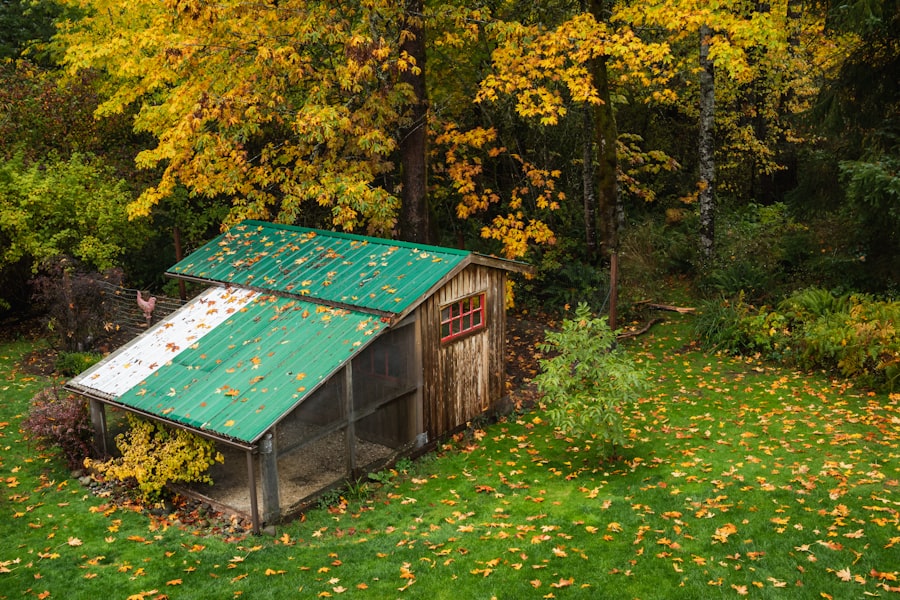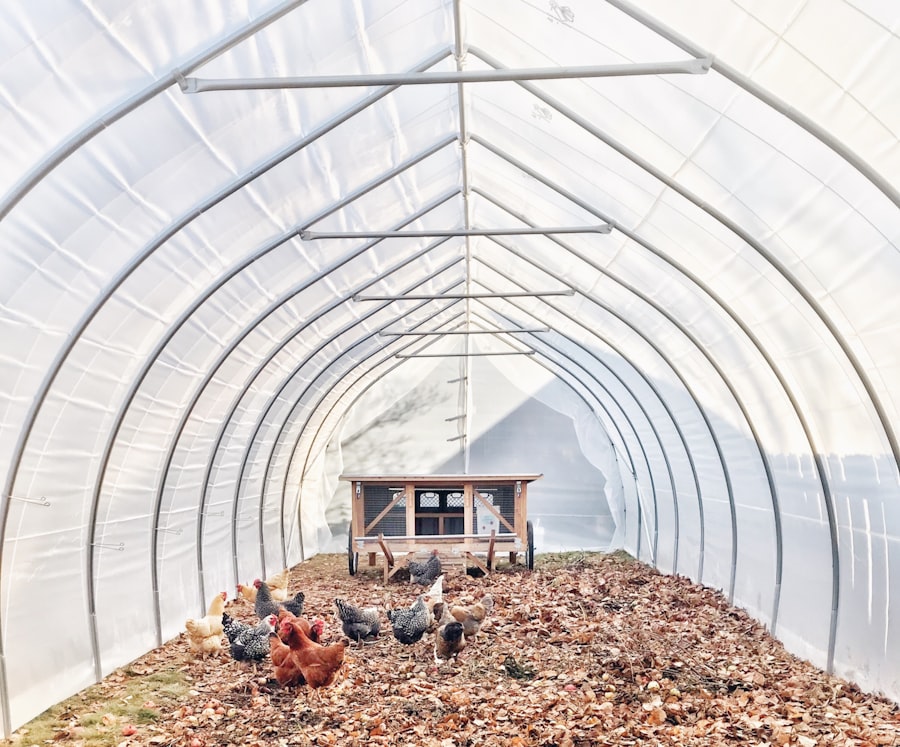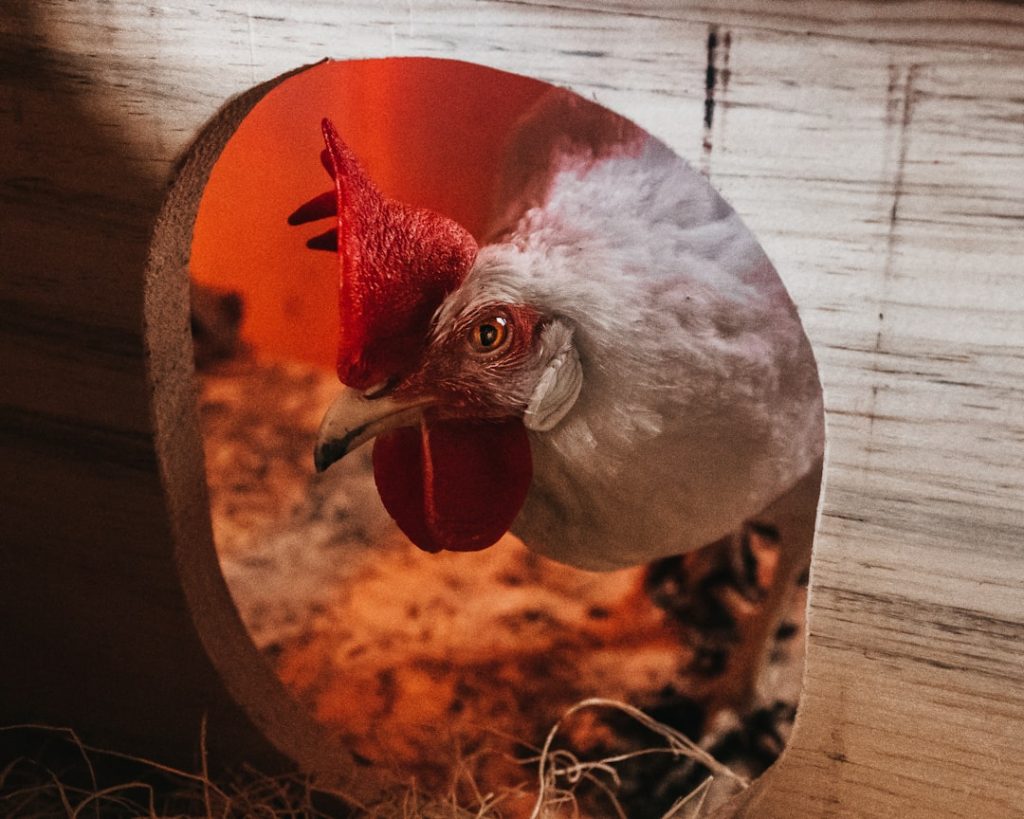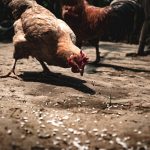Free range chickens are poultry that are allowed to roam outdoors, as opposed to being confined in small enclosures or coops. This farming method enables chickens to engage in natural behaviors such as scratching for food, dust bathing, and foraging for insects and plants. The increased space promotes better physical and mental health for the birds, resulting in more exercise and potentially healthier, leaner meat and eggs.
Free range chickens often have a more diverse diet, which can contribute to improved taste and nutritional value of their products. Free range farming requires more space than conventional methods, as chickens need ample room to explore. Adequate shelter, water, and food must be consistently available.
It is important to note that “free range” does not automatically mean organic or pasture-raised. Understanding local regulations and requirements for free range farming is crucial to ensure compliance with animal welfare standards. Free range chickens are valued for producing high-quality eggs and meat, as well as their ability to control pests and weeds in outdoor areas.
However, their nutritional needs may differ from confined chickens, necessitating a carefully balanced diet and constant access to clean water. Free range chickens may face increased risks from predators and diseases, requiring additional protective measures to ensure their safety and well-being.
Table of Contents
Key Takeaways
- Free range chickens are allowed to roam freely and forage for food, resulting in healthier and more flavorful eggs and meat.
- Preparing the yard for free range chickens involves creating a safe and secure environment with adequate space for them to roam and forage.
- Providing shelter and protection for free range chickens is essential to protect them from predators and harsh weather conditions.
- Feeding and watering free range chickens should include a balanced diet and access to clean water at all times.
- Managing health and hygiene for free range chickens involves regular health checks, proper waste management, and keeping their living area clean.
- Managing free range chickens with other animals requires careful supervision to prevent conflicts and ensure the safety of all animals.
- Ensuring safety and security for free range chickens involves installing proper fencing, locking up at night, and monitoring for any potential threats.
Preparing the yard for free range chickens
Securing the Perimeter
Start by securing the perimeter of the yard with a sturdy fence to prevent predators from entering the area. Make sure the fence is buried at least a few inches into the ground to prevent digging predators from gaining access.
Protecting from Aerial Predators and Providing Shelter
Additionally, consider installing a roof or netting over the yard to protect the chickens from aerial predators such as hawks and owls. Provide plenty of shade and shelter within the yard for the chickens to seek refuge from extreme weather conditions. This can be in the form of trees, shrubs, or man-made structures such as a coop or a sheltered area.
Creating a Safe and Healthy Environment
Ensure that the yard has a variety of vegetation and natural cover for the chickens to explore and forage in. Remove any toxic plants or potential hazards from the yard to prevent harm to the chickens. Create designated areas for feeding and watering stations within the yard. This will help prevent competition and ensure that all chickens have access to food and water. Consider using raised feeders and waterers to keep them clean and prevent contamination from dirt and droppings. It is also important to provide a dust bathing area for the chickens, as this is a natural behavior that helps them maintain good hygiene and control parasites.
Providing shelter and protection

When it comes to providing shelter for free range chickens, it is important to consider their specific needs and behaviors. A well-constructed coop or shelter is essential for protecting the chickens from predators, extreme weather, and providing a safe place for them to roost at night. The coop should be spacious enough to accommodate all the chickens comfortably, with adequate ventilation and natural light.
Ensure that the coop is predator-proof by using sturdy materials for construction and securing all openings with locks or latches. Consider adding predator-proof wire mesh around the coop and run area to prevent entry by small predators such as raccoons, foxes, and weasels. It is also important to regularly inspect the coop for any signs of wear or damage and make necessary repairs promptly.
In addition to a coop, provide roosting bars or perches for the chickens to rest on at night. This will help keep them off the ground and away from potential predators. Nesting boxes should also be provided within the coop for the hens to lay their eggs in a safe and comfortable environment.
During the day, free range chickens should have access to a secure outdoor area where they can roam freely. This can be in the form of a fenced-in yard or run attached to the coop. Ensure that the outdoor area is well-protected from predators and has plenty of natural cover and shade for the chickens to explore and forage in.
Feeding and watering free range chickens
Feeding free range chickens requires careful consideration of their nutritional needs and natural behaviors. While free range chickens have access to a varied diet from foraging outdoors, it is important to supplement their diet with a balanced feed to ensure they are getting all the necessary nutrients. Provide a high-quality layer feed for hens that are laying eggs, and a grower feed for young chickens or those not yet laying.
In addition to commercial feed, free range chickens can benefit from kitchen scraps, fruits, vegetables, and grains as part of their diet. However, it is important to avoid feeding them foods that are toxic or harmful to their health. Provide access to clean water at all times, either through waterers or natural water sources within the yard.
Consider using feeders that can be easily moved around the yard to prevent overgrazing in one area. This will help distribute the natural fertilization from the chickens’ droppings more evenly across the yard. It is also important to regularly clean and maintain feeders and waterers to prevent contamination and ensure the chickens have access to fresh food and water at all times.
Managing health and hygiene
Maintaining good health and hygiene practices is essential for keeping free range chickens healthy and disease-free. Regularly inspect the chickens for any signs of illness or injury, such as lethargy, abnormal droppings, or changes in behavior. Provide regular veterinary care and vaccinations as recommended by a poultry health professional.
Keep the coop and outdoor areas clean by regularly removing droppings, old bedding, and debris. This will help prevent the buildup of harmful bacteria and parasites that can affect the health of the chickens. Consider using natural or organic bedding materials such as straw or wood shavings that are safe for the chickens to come into contact with.
Practice good biosecurity measures by limiting contact between your free range chickens and other poultry or wild birds that may carry diseases. Quarantine new birds before introducing them to your existing flock to prevent the spread of any potential illnesses. It is also important to practice good personal hygiene when handling the chickens or their eggs to prevent the transmission of any potential diseases.
Managing free range chickens with other animals

Assessing Compatibility and Risk
Some animals, such as dogs, cats, or predatory birds, may pose a threat to free range chickens and should be carefully monitored when in close proximity. Consider using fencing or barriers to separate different animals within the same area.
Managing Interactions with Livestock
If you have other livestock such as goats or sheep, consider providing separate areas for them to graze in order to prevent competition for food and potential injuries between species. It is also important to monitor interactions between different animals closely to ensure their safety and well-being.
Beneficial Companions and Precautions
Some animals can be beneficial when kept alongside free range chickens, such as ducks or geese that can help control pests in the yard. However, it is important to monitor their interactions closely and provide separate feeding and watering stations to prevent competition between species.
Ensuring safety and security for free range chickens
Ensuring the safety and security of free range chickens requires ongoing vigilance and proactive measures. Regularly inspect fences, coops, and other structures for any signs of wear or damage that could compromise their integrity. Consider using motion-activated lights or alarms around the yard to deter potential predators during nighttime hours.
Implement predator deterrents such as scarecrows, reflective tape, or predator decoys around the yard to discourage unwanted visitors. Consider using guard animals such as dogs or llamas that are trained to protect poultry from predators. Monitor the behavior of free range chickens closely for any signs of distress or alarm that could indicate the presence of a predator nearby.
Provide secure shelter within the yard where they can seek refuge if they feel threatened. In conclusion, raising free range chickens requires careful planning and consideration of their specific needs and behaviors. By providing adequate space, shelter, food, water, and protection from predators, you can create a safe and healthy environment for your free range chickens to thrive in.
Regular monitoring of their health and well-being is essential for ensuring they lead happy and productive lives on your farm or homestead.
If you’re interested in keeping free range chickens in your yard, you may also want to consider the size of your chicken coop door. This article provides helpful information on the ideal size for a chicken coop door to ensure the safety and comfort of your chickens. It’s important to consider all aspects of poultry care when creating a welcoming environment for your feathered friends.
FAQs
What are free range chickens?
Free range chickens are poultry that are allowed to roam freely outdoors, rather than being confined to a coop or small enclosure. They have access to natural sunlight, fresh air, and a variety of plants and insects for foraging.
How much space do free range chickens need?
Ideally, free range chickens should have at least 10 square feet of outdoor space per bird to roam and forage. However, the more space they have, the better it is for their health and well-being.
What do free range chickens eat?
Free range chickens eat a variety of foods, including grass, insects, seeds, and kitchen scraps. It’s important to provide them with a balanced diet that includes commercial chicken feed, as well as access to natural foraging opportunities.
How do you protect free range chickens from predators?
To protect free range chickens from predators, it’s important to secure the perimeter of the yard with fencing, and to provide a secure coop for them to roost in at night. Additionally, using motion-activated lights and sound deterrents can help to scare off potential predators.
Do free range chickens need shelter?
Yes, free range chickens need access to shelter to protect them from the elements, such as extreme heat, cold, and rain. A simple shelter, such as a coop or a covered area, can provide them with a safe place to rest and seek refuge when needed.
How do you keep free range chickens healthy?
To keep free range chickens healthy, it’s important to provide them with a balanced diet, access to clean water, regular veterinary care, and a clean living environment. Additionally, allowing them to roam and forage outdoors can contribute to their overall health and well-being.
Meet Walter, the feathered-friend fanatic of Florida! Nestled in the sunshine state, Walter struts through life with his feathered companions, clucking his way to happiness. With a coop that’s fancier than a five-star hotel, he’s the Don Juan of the chicken world. When he’s not teaching his hens to do the cha-cha, you’ll find him in a heated debate with his prized rooster, Sir Clucks-a-Lot. Walter’s poultry passion is no yolk; he’s the sunny-side-up guy you never knew you needed in your flock of friends!







